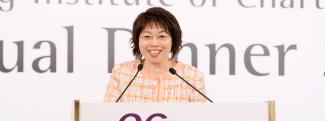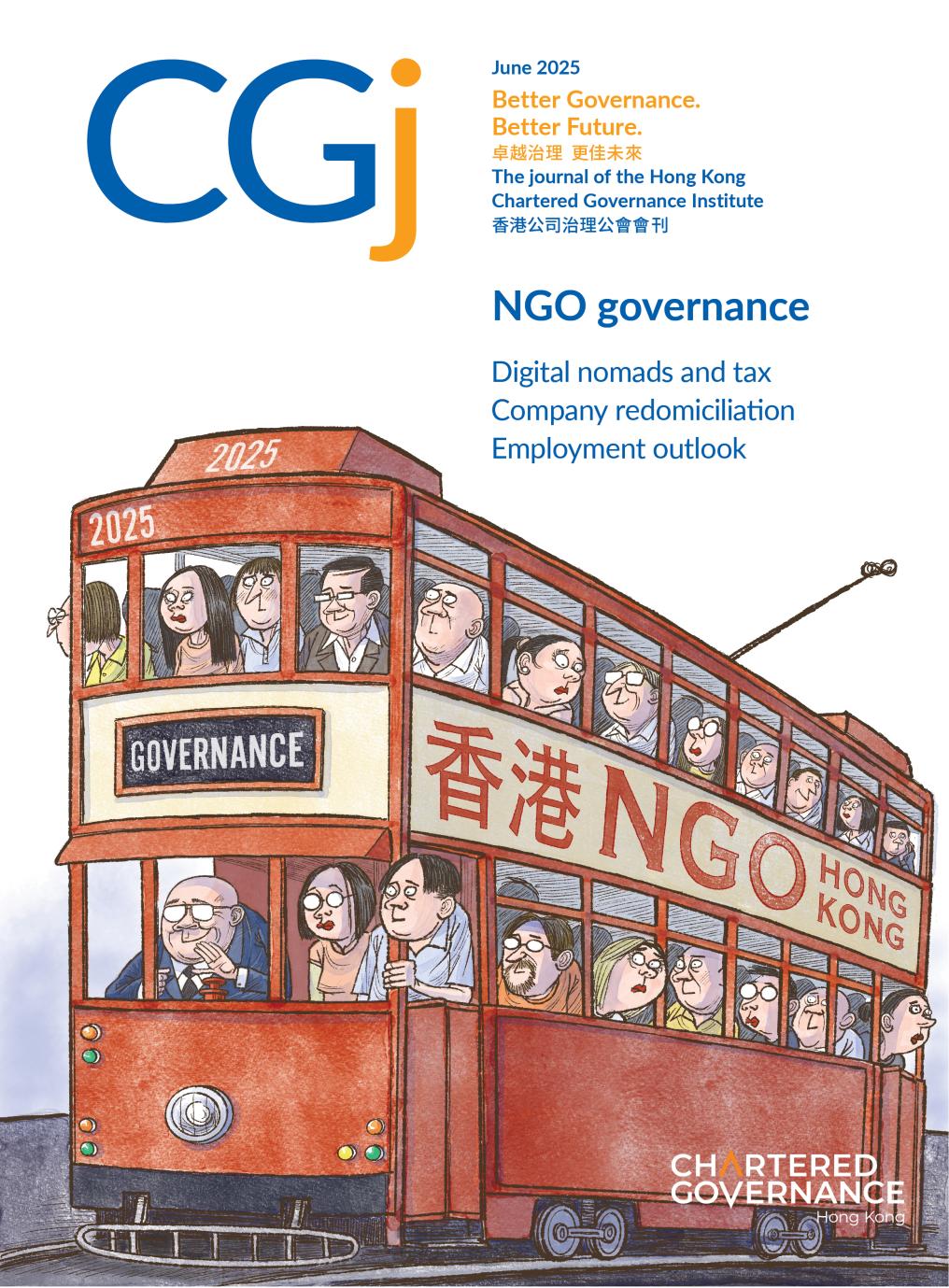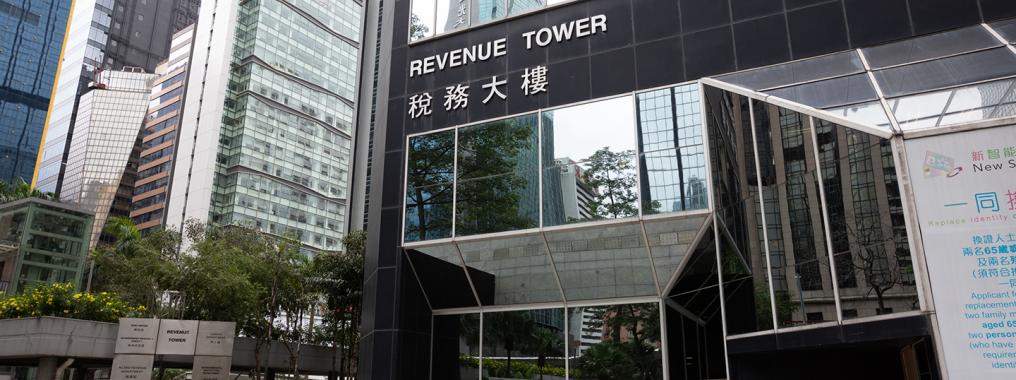We continue this series with our eighth interview featuring senior members of the governance profession. This month, CGj spoke with Institute Past President Natalia Seng FCG HKFCG.
When did you first join the Institute and what was your professional role at that time?
‘I first became involved with the Institute when I was a student at Hong Kong Polytechnic, studying for a three-year higher diploma. In 1977, I began preparing for the professional qualification examinations of The Institute of Chartered Secretaries and Administrators of London (now The Chartered Governance Institute (CGI)). After graduating and gaining three years of relevant experience, I officially became an Associate of the Institute in 1983. At that time, I was working in the Company Secretarial Practice of Ernst & Young – which was acquired by the Tricor Group in 2002 – having joined the firm in 1979.
I later became a Fellow of the Institute and served on its Council, including as President from 2007 to 2009.’
Did membership of the Institute support your career development and, if so, in what ways?
‘Yes, the Institute supported my career development significantly. As a Fellow, Council member and President, I gained exposure to market trends and built strong industry connections. When Tricor was first established, we were relatively unknown in our core service areas. But through active participation in Institute events, and collaboration with regulators like the Stock Exchange, the Securities and Futures Commission and the Companies Registry, we raised our profile. These platforms allowed us to showcase our expertise, build trust and bring in business, such as acting as an outsourced company secretary and share registry for a number of IPOs, including H share and red chips issuers. The professional recognition we gained helped open doors and advance both my career and Tricor’s standing.’
What would you say are some of the most significant milestones in the Institute’s history?
‘One of the most significant milestones in my mind was the elevation of our professional qualification framework around the early 2000s. At that time, our examination structure transitioned from A-level equivalency to one that was recognised at master’s degree level. This allowed the Institute to raise the entry bar, requiring candidates to first hold a university degree, which in turn helped position the qualification both as more rigorous and as more appealing. We were then able to reach out to undergraduates from a broader range of disciplines – such as English language and translation, history and law – many of whom appreciated the career prospects the profession offered. Many of these undergraduates joined the Institute as students and went on to become full members.
A second major milestone came around 2003/2004, when the Stock Exchange facilitated the listing of more H shares from Chinese state-owned enterprises in Hong Kong. Our members played a vital role in guiding these companies through the unfamiliar Hong Kong Listing Rules, disclosure requirements and AGM procedures, becoming trusted governance advisers during a pivotal phase of market development.
The third key milestone was our more recent rebranding as governance professionals. This shift broadened the identity of our members beyond company secretaries, better reflecting the wide range of roles they play in corporate governance, ESG, risk management and anti–money laundering (AML) and compliance across both listed and non-listed sectors.’
Can you share some of your personal golden reflections of your time with the Institute?
‘One of my most memorable reflections was representing the Institute, as CGI’s Hong Kong/China Division, on the international stage during and after my presidency. At that time, we were actively engaging with other divisions, including those in Singapore, Malaysia, Australia and South Africa, to advocate for a fairer governance structure within the international body. Through persistent dialogue, we succeeded in pushing for proportional representation, based on the number of members and students, thereby increasing the number of Hong Kong/China Division seats on the International Council. That was a breakthrough.
Another golden moment was our collaboration with the Companies Registry during the early development of electronic company registration. We worked closely with the Registry to ensure that digital transformation wouldn’t compromise corporate governance or AML standards. I also take pride in contributing to the groundwork for Hong Kong’s Trust and Company Service Provider licensing regime, which raised compliance standards in that industry. These collective efforts reflect how the Institute plays a proactive role in shaping practical, forward-looking reforms.’
What has changed for women in the governance profession since your own career began and how has the Institute helped in that regard?
‘When I began my career, the majority of those studying to become company secretaries were women, many of whom then entered the profession. Over the years, more women have risen to leadership roles in governance. The Institute has always provided a strong platform for women, offering equal opportunities, training and support that help our gender thrive professionally.’
What advice would you give to the younger generation starting out in their governance careers?
‘I would encourage young people to consider governance as a solid professional path. In today’s world, governance knowledge is highly relevant across all industries. Whether you work in business or public organisations, understanding governance principles equips you to make sound decisions, especially at senior levels. It helps you assess risks, ask the right legal questions and avoid potential pitfalls. You’ll be better prepared to speak up when something goes wrong, and this will protect both your organisation and yourself. Gaining a professional qualification in governance early on is a smart investment as it builds your confidence, judgement and long-term career resilience.’
the Institute has always provided a strong platform for women, offering equal opportunities, training and support that help our gender thrive professionally
Natalia Seng FCG HKFCG
Institute Past President
睿思智享系列专门采访治理行业的资深成员,今期是第八篇专访,采访对象为公会前会长沈施加美女士 FCG HKFCG。
您是什么时候加入公会的?当时您的专业身份是什么?
‘我是在香港理工学院读三年制高级文凭课程期间第一次认识公会。1977年,我开始准备伦敦特许秘书及行政人员公会(现称特许公司治理公会)的专业资格考试。毕业后我取得三年相关工作经验,于1983年正式成为公会会士。那时候, 我在安永会计师事务所的公司秘书部工作,我是1979年加入该事务所的,后来该部门于2002年被卓佳集团收购。
后来我成为公会的资深会士,并曾担任理事会成员,还在2007年至2009年期间担任会长。’
公会的会员资格是否有助于您的职业发展?如果有,在哪些方面?
‘是的,公会在我的职业发展中起到了重要作用。作为资深会士、理事和会长,我能够紧贴市场趋势,并建立起坚实的业界人脉网络。卓佳刚成立时,我们在市场上的知名度还不高。但通过积极参与公会活动,并与香港交易所、证券及期货事务监察委员会、公司注册处等监管机构合作,我们提升了自身的行业形象。这些平台帮助我们展示专业能力、建立信任并拓展业务,例如担任多家首次公开招股的H股和红筹公司的公司秘书和股票过户登记处。我们所获得的专业认可打开了许多大门,帮助我本人的职业发展,也提升了卓佳集团的地位。’
您认为公会历史上有哪些重要的里程碑?
‘在我看来,其中一个重要的里程碑是在2000年代初,我们的专业资格框架得到了提升。当时我们的考试体系,从相当于高级程度上升到硕士学位水平。这个转变使得公会能够提高入会门槛,要求考生先取得大学学历,从而让这个资格的定位更严格,也更有吸引力。我们因此能吸引更多来自不同学科背景的本科生,例如英语语言与翻译、历史和法律等,他们都看好这个专业的职业发展前景。许多这些学科的本科生加入公会成为学员,最终成为正式会员。
第二个重要里程碑是大约在2003/2004年,当时香港证券交易所促成更多国有企业在香港上市成为H股公司。我们的会员在指导这些公司了解香港的上市规则、信息披露要求及股东周年大会流程方面发挥了关键作用,成为这些企业在市场发展关键阶段的可信治理顾问。
第三个关键转变是我们最近将品牌重新定位为治理专业人士。这一转变拓宽了会员的职业身份,不再局限于公司秘书的角色,更加真实地反映了他们在上市和非上市公司中企业治理、ESG、风险管理、反洗钱和合规等领域所扮演的广泛角色。
您能分享一些关于公会的美好回忆吗?
‘我最难忘的时刻之一是在我担任会长及卸任后的时期, 代表公会作为公司治理公会香港/中国分部在国际舞台上发声。当时我们积极与新加坡、马来西亚、澳大利亚及南非等分部沟通,推动国际总会设立更公平的治理架构。通过持续的对话,我们成功推动了基于会员和学员人数的比例代表制,增加了香港/中国分部在国际理事会中的席位,这是一个重大突破。
另一个重要时刻是我们与公司注册处合作,参与推动电子公司注册系统的早期发展。我们紧密合作,确保数码化转型不会牺牲企业治理和反洗钱的标准。我也很自豪能为香港建立信托及公司服务提供者发牌制度的基础工作贡献一 份力量,这一制度提升了行业的合规水平。这些努力体现了公会在推动务实、前瞻性改革方面的积极角色。’
与您职业生涯刚开始时相比,治理行业中女性的地位发生了怎样的变化?公会在这方面起到了什么作用?
‘我刚入行时,学习公司秘书专业的大多数是女性,当中很多随后也进入了这个行业。多年来,越来越多女性在治理领域中晋升为领导角色。公会一直为女性提供强有力的平台,给予平等的机会、培训和支持,让女性在专业领域中能够有出色表现。
您对刚刚开始治理生涯的年轻一代有什么建议?
‘我鼓励年轻人把治理视为一条稳健的专业发展路径。在当今社会,无论在哪个行业,治理知识都至关重要。不论你在企业还是公共机构工作,尤其是担任高层职位时,掌握治理原则都能帮助你作出明智的决策。它能帮助你识别风险、提出适当的法律问题、避免陷阱。当有问题发生时,也会敢言,保护公司,也保护自己。尽早考取治理专业资格是非常明智的投资,它能助你建立信心、判断力以及长期的职业抗压能力。’
公会一直为女性提供强有力的平台, 给予平等的机会、培训和支持,让女性在专业领域中能够有出色表现
沈施加美女士FCG HKFCG
公会前会长



